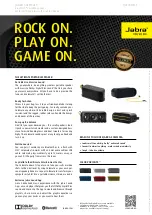
Page 31
Start-up Sequence
CHECK:
1. H
2
Outlet is connected to application
2.
Mains power is connected
Turn the power switch ON. The water tank will light up, the cooling fan will rotate.
On power up the generator will check the water level, once the water level is at the
minimum level required the generator will perform a diagnostic check including a
leak test, this should take approximately six minutes and during this time the tank
illumination will cycle from dim to bright
Upon successful completion of the leak test, the tank illumation will turn solid green
and the generator is ready to deliver hydrogen.
Once the generator is at pressure, the delivery valve may be toggled by momentarily
pressing the front button. Bubbles will be visible through the viewing window when the
generator is producing hydrogen.
The generator may be restored to a depressurised state by pressing and holding the
front button for at least three seconds. This will cause the generator to cease hydrogen
production, illuminate the water tank blue, and exhaust any stored hydrogen through
the exhaust port at the rear of the generator.
Note: If leak test is unsuccessful, the water tank will illuminate orange and the generator will
cease attempting to produce hydrogen. The user should contact their Peak service provider.
Liquid Leak Detectors
Liquid leak detectors should not be used on the Precision Hydrogen. These solutions
are easily drawn into the high purity hydrogen gas system and can cause contamination
of the system. If a liquid solution has to be used, then it should be IPA based, or a
portable hydrogen detector should be used.
Gas Traps
It is recommended to follow the best practice advice from your instrument
manufacturer. For hydrogen supplied to GC detectors, a hydrocarbon trap is normally
recommended.
The hydrogen gas produced by the Precision Hydrogen will be sufficiently pure for
these contaminant traps to last a long time, but should a leak ever occur on the gas
line, the traps will ensure that any harmful contaminants are caught, thereby preventing
potential damage to the instrument.
Summary of Contents for SL 100 cc
Page 39: ...Page 39...










































